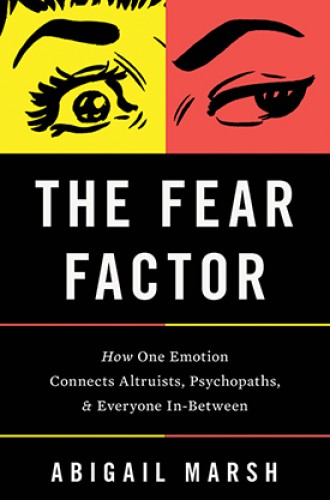An altruist and a psychopath walk into a research study
Neuroscientist Abigail Marsh documents fascinating discoveries about how our brains process fear.
Abigail Marsh is haunted by a story she once heard at a conference. A researcher had showed a prisoner a series of pictures, asking him to identify the emotion each face depicted. Whenever the prisoner looked at a frightened face, he was uncertain. Finally, he mused, “I don’t know what that expression is called. But I know that’s what people look like right before I stab them.”
The researcher, Essi Viding of University College London, studies psychopaths—callous, manipulative, and often violent people with no capacity for compassion. Marsh, who directs the Laboratory on Social and Affective Neuroscience at Georgetown University, studies both psychopaths and their exact opposites: extraordinary altruists who voluntarily help strangers even at the risk of their own health, wealth, or life. Oddly, Marsh finds much of the research on psychopaths “downright uplifting.”
Marsh, who is not only an award-winning academic but also a skilled storyteller, got interested in altruists when she was a college sophomore. Driving home one night, she braked and swerved in an attempt to miss a dog running across an eight-lane freeway. She hit the dog, her car spun into the fast lane of oncoming traffic, and the car’s engine died. As she weighed her options and prepared to die, a stranger tapped on her window. Risking his own life, he got her car started and moved it across the freeway to an off-ramp. Marsh wanted to know why.






